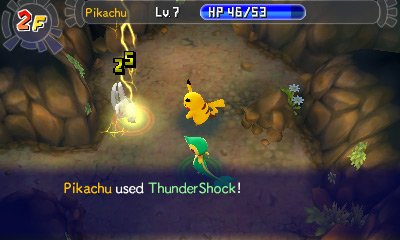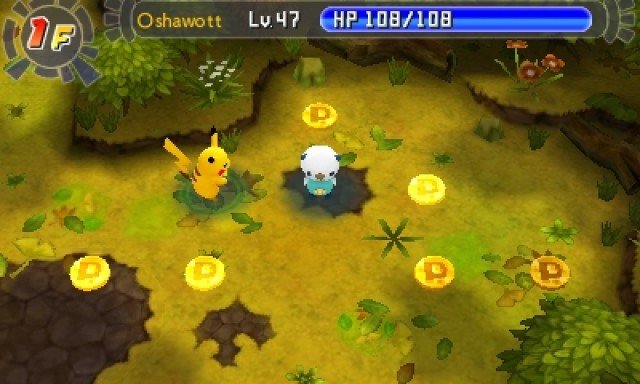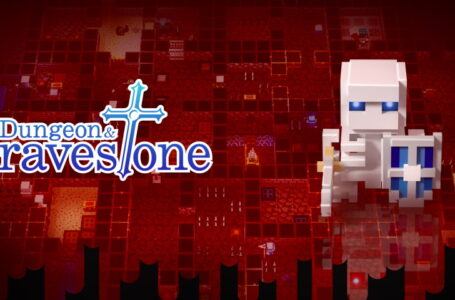Pokémon Mystery Dungeon: Gates to Infinity Review (3DS)
The Mystery Dungeon spin-offs of the Pokémon series have always been pretty interesting. Pokémon can speak, and they have the potential to tell a more involving story than those of the main series. It’s just a shame that these spin-offs never amount to anything more than average dungeon crawlers.
While many games have used the Mystery Dungeon style of gameplay, the Pokémon versions have always felt pretty strange to me. While MD games pretty much play like watered down Rogue-likes (dungeon crawlers with a heavy focus on randomly generated content), they’re still a lot less forgiving than the mainly lighthearted Pokémon games. Obviously, some changes had to be made to accommodate for Pokémon fans, which in turn has watered down gameplay even further.
Gates to Infinity also includes something that the mainline Mystery Dungeon games tend to avoid – an overarching plot. Like previous Pokémon MD entries, you’re sent into the world as a human-turned-Pokémon. Instead of offering a personality test to decide which Pokémon you are like the earlier games however, you instead get to choose which you will be, as well as the first Pokémon you meet. Even though this seems like a small change, these simplifications continue throughout the game to create an overall more bland game.
The bulk of Gates to Infinity is spent, as you’d probably expect, trawling through a multitude of dungeons, either to complete requests or advance the story. Each dungeon is randomly generated, but they all boil down to a few rooms connected by corridors, with there being a small chance of a special room like a shop appearing. There are quite a few locations to explore, but they generally consist of dull caves with nothing particularly interesting going for them. Since dungeons are randomly generated, there are no chances for set pieces outside of certain story events, meaning that most ‘adventures’ consist of a bunch of dungeon floors that all start to look the same after a while.
Some variety is introduced into this monotony by the Pokémon themselves. Like the main series, each Pokémon has a set of four attacks, as well as elements and abilities. A new feature found in Gates to Infinity is the ability to level up moves, with move levels shared between all Pokémon. It’s a nice addition, and isn’t something that would work well in the main series, thanks to its multiplayer components. It’s one of the few times Gates to Infinity tries to improve the formula, and it adds an extra layer to dungeon crawling, if only a minor one.
Another change that is interesting, but not necessarily great, is Paradise. Your chosen partner Pokémon wants to build a utopia for all Pokémon, and to do so you need money and materials. Doing request will reward you with said materials, which are used to clear barren land and create facilities to build up Paradise. This makes request have more of an importance, since they allow you to further expand Paradise, instead of just giving out money and items. The main problem with this addition though, is that it doesn’t particularly help in any way. While you can build dojos to improve different move types, the benefits are so miniscule that it’s more beneficial to quickly run through a low level dungeon.
Further problems arise from the different fields you can create. These allow you grow new berries ad seeds that you can use on your adventures. This would be fine, but even without these fields, items are far too abundant for you to ever run out. Adding on any items that you grow, the game becomes a breeze. The only penalty for being defeated is the loss of a meagre amount of items, which just makes a small dent in your inevitable horde of items. Then again, you’ll most likely find yourself rarely using items, thanks to the games lack of challenge. Bosses may pose a slight challenge, but for the most part you’ll breeze though dungeons.
To be fair, this entry in the Pokémon franchise is most likely aimed at the younger side of the fanbase. This is proven by the game’s story and how most events play out – bad things happen, and the power of friendship saves the day. While I can appreciate a lighter story in an industry full of guns and violence, it’s almost too mice for its own good, sometimes coming off as annoying. Story events also have the tendency to go on for far too long, which is not helped by way text slowly scrolls along.
To be honest, Gates to Infinity isn’t a great game, but it isn’t a complete lost cause. Outside of the bland dungeon designs, everything is nice and colourful, from the town hub to each Pokémon, which definitely benefit from the series’ jump to the 3DS. Dungeon crawling can also be fun, as long as you don’t intent to play for long stretches of time. In the end, Pokémon Mystery Dungeon: Gate to Infinity is an average dungeon crawler with a few sparks of originality. It’s not the worst Pokémon spin-off, not by a long shot, but you’d be better off waiting for Pokémon X and Y.
- Arcana Heart 3: Love Max!!!!! Reaches North America This Year - April 30, 2014
- BlazBlue coming to Europe… Next Week?! - April 17, 2014
- Blazblue: Chronophantasma Vita Release Dated For North America - April 14, 2014








